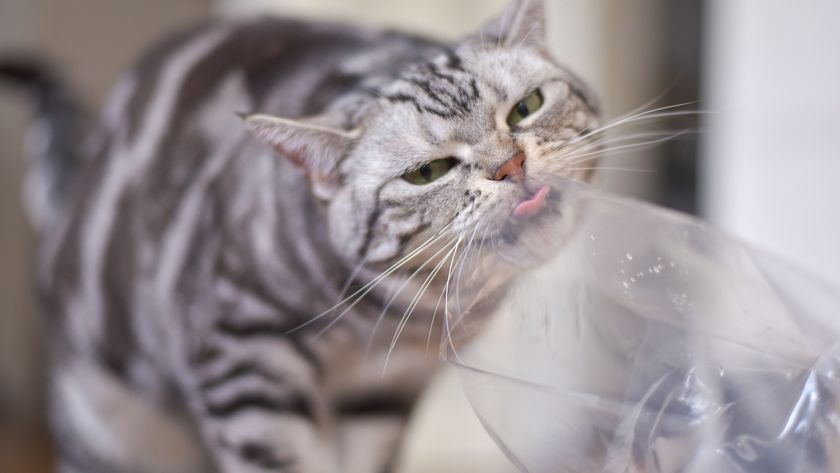Flaxseed Might Protect Against Death from Radiation

Flaxseed may protect against the damaging effects of radiation, whether from a terrorist's dirty bomb or a routine cancer treatment, a new study in mice suggests.
Mice that ate flaxseed either before or up to six weeks after receiving a large radiation dose to the chest were more likely to survive and had fewer lung problems than mice not given flaxseed. Four months after receiving radiation, up to 88 percent of mice that ate flaxseed were still alive, compared with just 40 percent of mice who did not eat flaxseed. Researchers have been particularly interested in finding a cheap, safe supplement to give to people who have been exposed to radiation in the event of a terrorist attack. "You need to give something that's really safe as well as [easy] to deliver to a huge number of people all at once," said study researcher Dr. Keith Cengel, an assistant professor of radiation oncology at the University of Pennsylvania School of Medicine. Flaxseed meets these requirements and may provide additional health benefits, including improved heart health. "It’s as close to a no-brainer as you get," Cengel said. However, the researchers are not certain the protective benefits will translate to people. The new study was published online in the journal BMC Cancer on June 24. Radiation dangers Terrorist use of a "dirty bomb" could expose large numbers of people to radiation. This type of bomb disperses radioactive material in the form of an aerosolized powder, and poses great health risks, the researchers said. One type of lung injury that can follow is called fibrosis, in which scar tissue prevents the lung from being able to expand normally during breathing. This injury can also occur in lung cancer patients who have received too much radiation during treatment. The mice in the new study received a single dose of radiation equivalent to getting about 10,000 X-rays, or what a cancer patient might receive over an entire course of radiation treatment, Cengel said. One group of mice ate a diet of 10 percent flaxseed before radiation. In people, this would be the equivalent of eating four tablespoons of whole-grain flaxseed per day, the researchers said. Other mice were given that amount of flaxseed two, four or six weeks after radiation. A control group ate no flaxseed. Aside from having a better chance of surviving, the mice that ate flaxseed also lost less weight and had a lower risk of inflammation and fibrosis than those who didn't eat flaxseed. The researchers said they aren't sure how flaxseed mitigates radiation's effects. Most DNA damage occurs immediately after a radiation exposure, but flaxseed may prevent the body from reacting in an abnormal way to the radiation, and thus causing further damage, Cengel said. What about people? "This is extremely encouraging," Dr. Nagy Elsayyad, an assistant professor of radiation oncology at the University of Miami Sylvester Comprehensive Cancer Center, said of the study's results. The results warrant more research in this area, said Elsayyad, who was not involved with the study. It's possible providing flaxseed to lung cancer patients before radiation treatment could allow doctors to increase the radiation dose without increasing the risk of injury, Elsayyad said. "That could translate to better cure rates with radiation," he said. But some are skeptical about whether flaxseed could be used after a terrorist attack or nuclear accident. "I think there's a likelihood it might do some good," said Dr. Jacqueline Williams, a radiation expert at the University of Rochester in New York. "But I think what the decades of research that have gone into such attempts have shown is that a single drug or a single attempt like this is unlikely to be totally effective," Williams said. It's more likely a combination of agents will be needed to provide protection, she said. And the mice used in the study were genetically identical, in contrast to people, who are genetically diverse, Williams said. It's unclear whether flaxseed would have the same effect on everyone, she said. The researchers are now testing the effectives of flaxseed to prevent radiation damage in people receiving radiation treatments for cancer, Cengel said. Pass it on: Flaxseed may mitigate the effects of radiation exposure.
This story was provided by MyHealthNewsDaily, a sister site to LiveScience. Follow MyHealthNewsDaily staff writer Rachael Rettner on Twitter @RachaelRettner. Like us on Facebook.
Sign up for the Live Science daily newsletter now
Get the world’s most fascinating discoveries delivered straight to your inbox.

Rachael is a Live Science contributor, and was a former channel editor and senior writer for Live Science between 2010 and 2022. She has a master's degree in journalism from New York University's Science, Health and Environmental Reporting Program. She also holds a B.S. in molecular biology and an M.S. in biology from the University of California, San Diego. Her work has appeared in Scienceline, The Washington Post and Scientific American.











